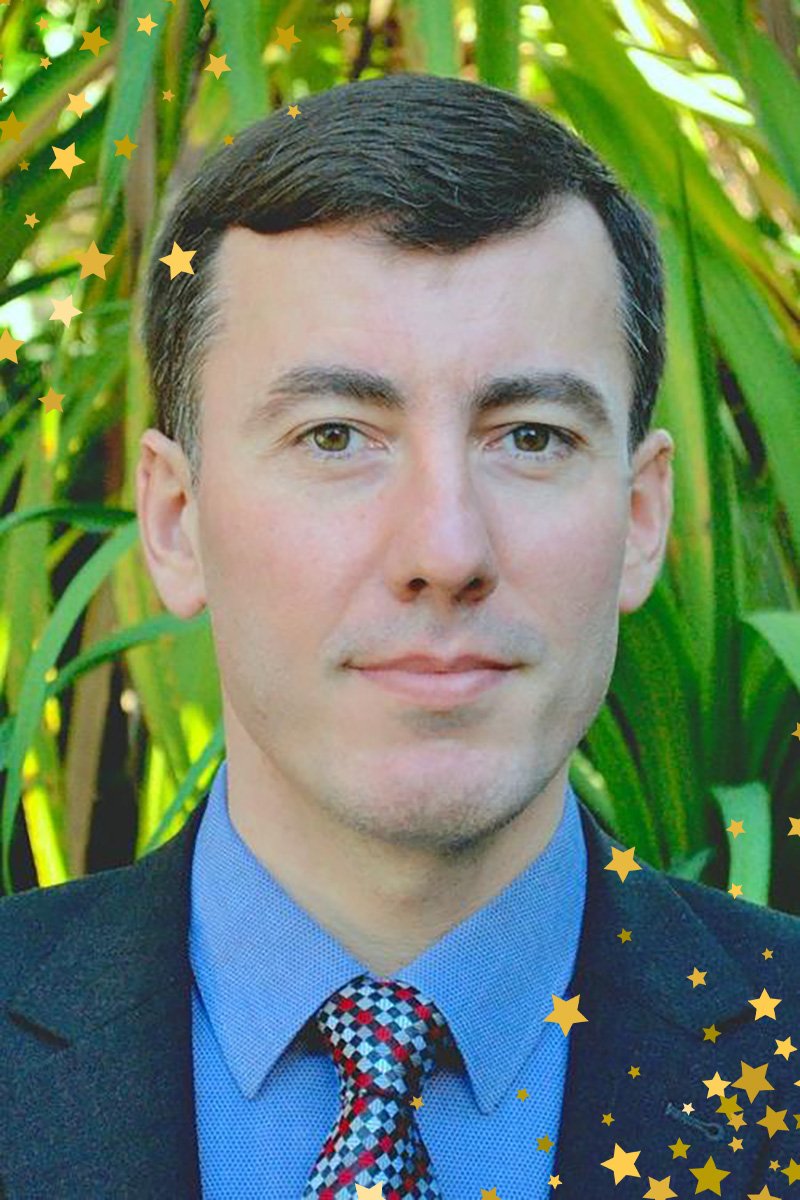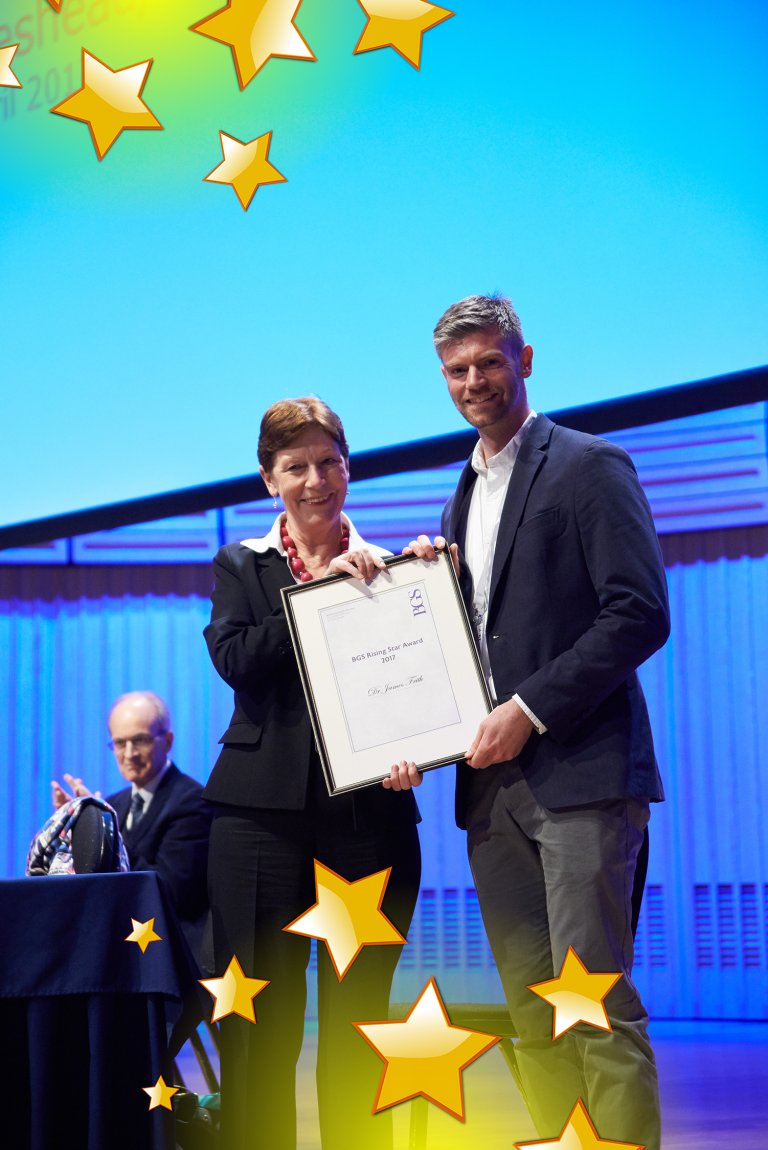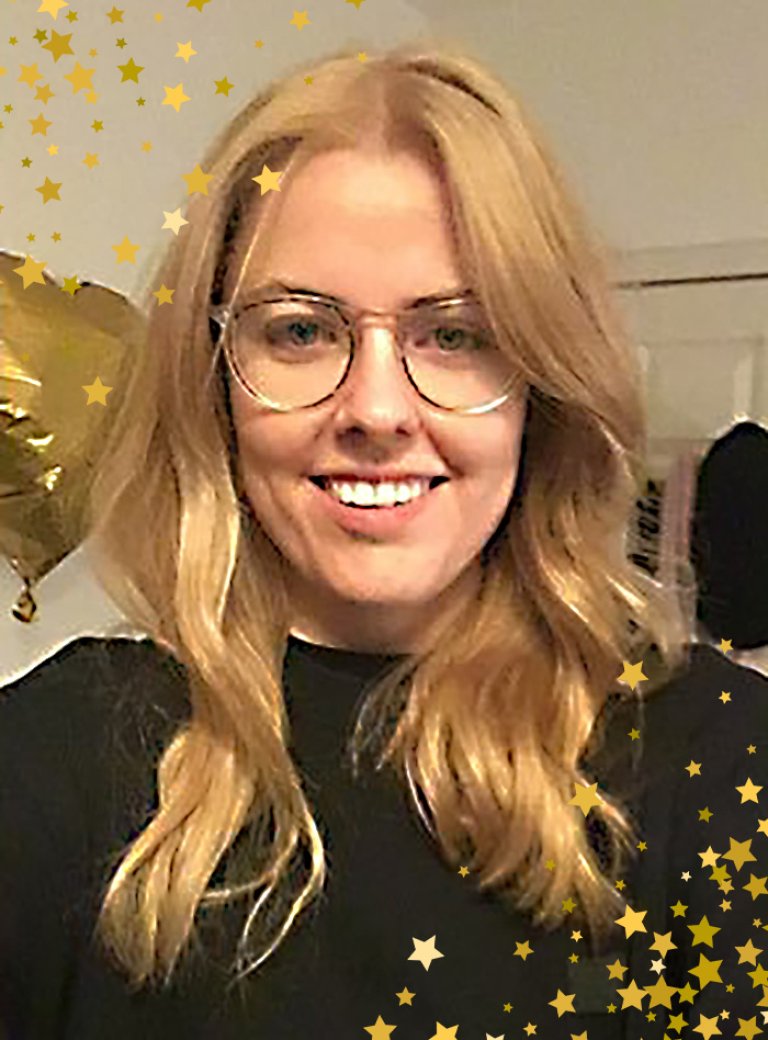Roman Romero-Ortuno is Head of the Discipline of Medical Gerontology in the School of Medicine, Trinity College Dublin, and Consultant Physician in the Mercer’s Institute for Successful Ageing in St James’s Hospital, Dublin, Ireland. Today, October 1st, 2022, Roman celebrates his academic promotion from Associate Professor to full Professor in Medical Gerontology. In this invited blog, he draws from personal experience to date and shares some of the practical benefits of receiving the British Geriatrics Society Rising Star Award. He tweets at @ProfOrtuno and @TCDGerontology.
My name is Roman Romero-Ortuno and I was honoured to be the inaugural joint recipient (with the great Daniel Davis) of the 2015 British Geriatrics Society (BGS) Rising Star Award in recognition of research contributions. In that moment, receiving the award from the then BGS President David Oliver filled me with pride and joy, but I was not anticipating the “domino effect” that would follow in my career.
At the time of receiving the award I had recently arrived from Ireland as a Consultant in Care of the Elderly in Addenbrooke’s Hospital, Cambridge, and starting to embark with my wonderful colleagues in the Department of Medicine for the Elderly (DME) in the first large-scale evaluation of the routine use of the Clinical Frailty Scale in an NHS hospital. The recognition by the BGS that my research contributions in frailty had potential for improving the care of older people was key not only to engage stakeholders and get the first collaborations off the ground, but also to keep me motivated in my academic endeavours during busy clinical times. An added benefit of the Rising Star Award was the subsequent invitation to speak at the 2016 BGS Spring Meeting in Liverpool, where I had the opportunity to present the first evaluation results and a vision for the use of hospital big data in personalised clinical care and better clinical pathway design.
Maybe because modern geriatrics in the United Kingdom and the foundation of the BGS served as models for similar developments in other European countries, a personal recognition by the BGS may have resonance elsewhere. Seemingly applicable to me, in 2016 I was awarded the First Prize at the Annual Congress of the Catalan Society of Geriatrics and Gerontology, and in 2017 the Count of Cartagena Award from the Royal National Academy of Medicine of Spain, for a dissertation entitled “El cribado de la fragilidad en el hospital de agudos: investigaciones de un geriatra español en Inglaterra” (frailty identification in the acute hospital: studies by a Spanish geriatrician in England). On my return to Ireland, my condition as BGS Rising Star still did not go unnoticed and in 2018 it helped me attain the prestigious President of Ireland Future Research Leaders Award. A few years down the line, I find myself in a Professorial position and leading an Academic Department.
A researcher could hypothesise that the 2015 Rising Star Award may have been causal in triggering a fortunate cascade of events. As you will read throughout this BGS Blog Rising Star Series, the upwards and onwards trajectories of previous awardees would support the hypothesis. And even if you think (unlike many geriatricians I know) that “nature” precedes “nurture”, one thing is clear: if you don’t apply you will never know!


